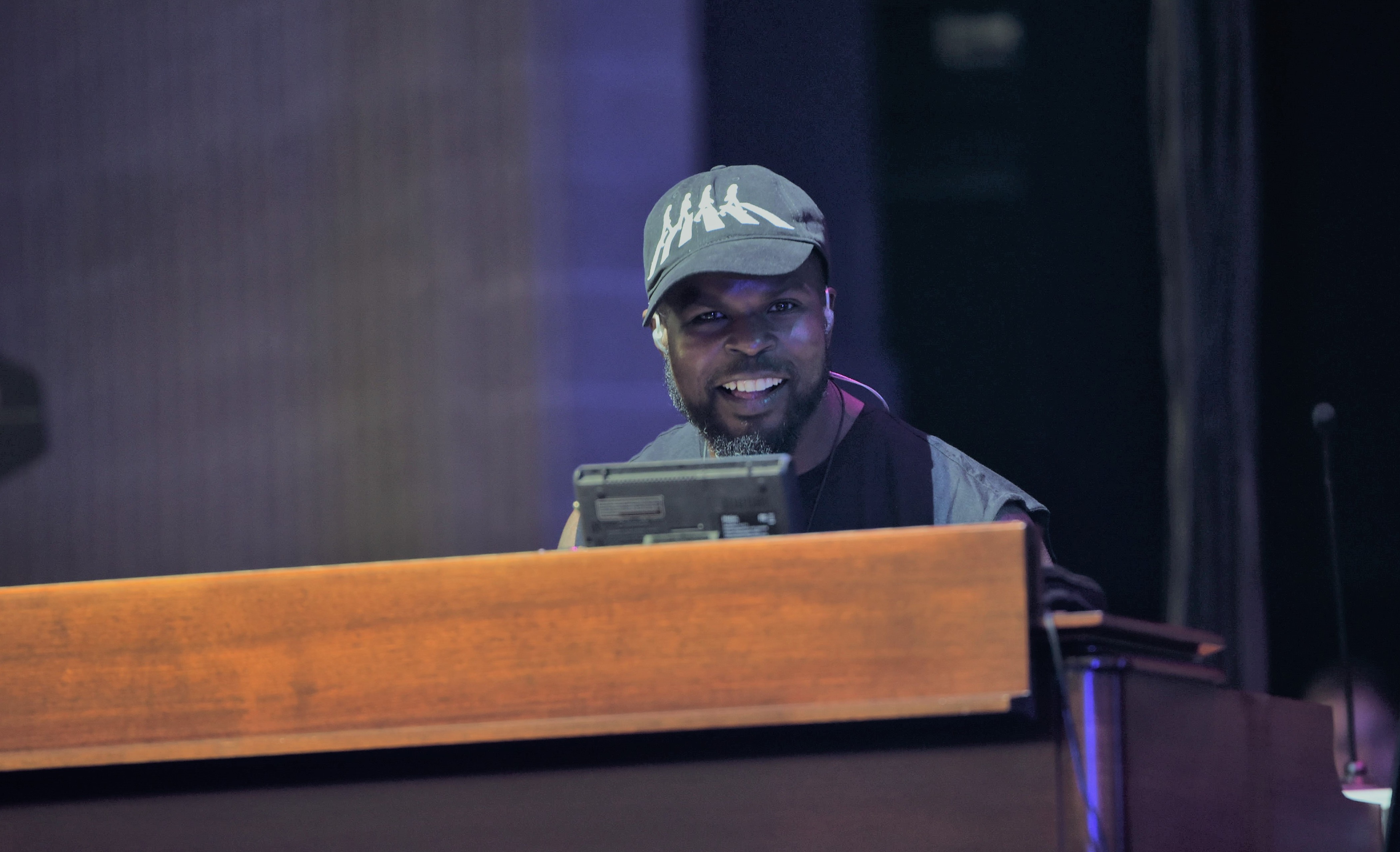Relix 44: Dave Matthews Band’s Buddy Strong

photo by Stephen Bloch
Welcome to the Relix 44. To commemorate the past 44 years of our existence, we’ve created a list of people, places and things that inspire us today, appearing in our September 2018 issue and rolling out on Relix.com throughout this fall. See all the articles posted so far here.
DMB Keyman: Buddy Strong
Buddy Strong celebrated his birthday by indulging in the “purest form of musical cocaine”: a sprawling, 22-minute version of Dave Matthews Band’s “Two Step” at a show in Indiana. But it was nearly a nightmare trip. The keyboardist—who’d only joined the group’s summer tour just over a month before—dutifully navigated the Crash epic’s brooding marches and funky grooves, right up until the natural end point of the album arrangement. Then, he realized his new bandmates had veered off into their now-standard mutated jam, leaving him frantically playing catch-up.
“I was oblivious,” he admits. “I was driving with my eyes closed.” But the sheer thrill of learning on the fly, of living in the moment, is why this gig made him “the happiest I’ve been about music in a long, long time.” He continues, “That was the best night I’ve had with this band. [Drummer Carter Beauford] started playing, and I couldn’t believe it. It’s like we’d released the beast.”
DMB recruited Strong after parting ways with their longtime violinist Boyd Tinsley and realizing they needed another instrument to fill out the live sound. Though they’d collaborated with other keyboardists in the past—most notably early member Peter Griesar and longtime touring associate Butch Taylor—they sought out a new creative flavor in Strong, who built his resumé
in gospel, hip-hop and R&B. The connection was DMB trumpeter/horn arranger Rashawn Ross, with whom Strong shared a mutual friend in Usher guitarist Johnny “Natural” Najera. Strong almost joined the lineup two years ago, when the band toyed with the idea of bringing back keyboards, but Tinsley’s absence offered a more obvious entry point.
The audition process was informal to the point of envy. Strong says Matthews operated more on chemistry and camaraderie than the rigorous, hours-long tryout one might expect. “I studied the Live in Chicago album, and I went to meet Dave at his studio,” Strong says. “I sat down, and he
showed me this great piano he had—it almost has a saloon sound to it. Not knowing him very well, I didn’t know if I was in a situation where I had to amaze him. I was just noodling, and the audition lasted like five minutes. I played ‘Steady as We Go,’ and it was over. He was like, ‘Ah, man, let’s go get something to eat.’”
Strong also wound up earning his first DMB studio credit on “Black and Blue Bird,” a dreamy highlight from their latest LP, Come Tomorrow. “They were pretty much done with the album when they called me on. They sent me the tracks, and I recorded it right at my house. When I heard the track, I was like, ‘This is amazing! It don’t even need keys on it.’”
But the biggest thrill has been chasing the freewheeling high of their stage show. “They’ve been stretching me out,” he says, detailing the grueling challenge of learning their back catalog. “That’s one of the most challenging things in this band—there’s so much material, but also so much experimentation. They groove so well without me—they’ve been doing it for 25 years. They love the gospel flavor, the funk flavor, the jazz. In this situation, I can just be me.”
This article originally appears in the September 2018 issue of Relix. For more features, interviews, album reviews and more, subscribe here.



















